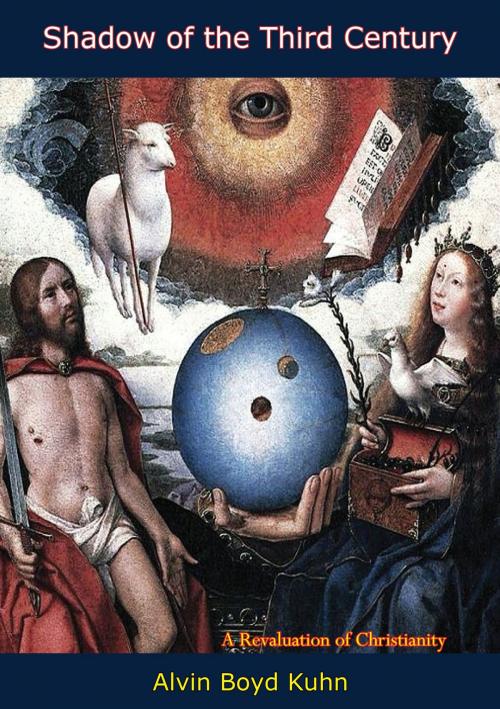Shadow of the Third Century
A Revaluation of Christianity
Nonfiction, Religion & Spirituality, Christianity, Education, Christian Life| Author: | Alvin Boyd Kuhn | ISBN: | 9781789123449 |
| Publisher: | Papamoa Press | Publication: | January 13, 2019 |
| Imprint: | Papamoa Press | Language: | English |
| Author: | Alvin Boyd Kuhn |
| ISBN: | 9781789123449 |
| Publisher: | Papamoa Press |
| Publication: | January 13, 2019 |
| Imprint: | Papamoa Press |
| Language: | English |
Shadow of the Third Century: A Revaluation of Christianity, first published in 1949, begins with the assertions that a true history of Christianity has never before been written and that the roots of the Christian religion lie in earlier religions and philosophies of the ancient world.
The author, Alvin Boyd Kuhn, asserts that Christianity as we know it took the form it did due to a degeneration of knowledge rather than to an energization produced by a new release of light and truth into the world. In the ancient world, knowledge was commonly passed down by esoteric traditions, its inner meaning known only to the initiated. The Gospels, according to Kuhn, should therefore be understood as symbolic narratives rather than as history. Sacred scriptures are always written in a language of myth and symbol, and the Christian religion threw away and lost their true meaning when it mistranslated this language into alleged history instead of reading it as spiritual allegory. This literalism necessarily led to a religion antagonistic toward philosophy. Moreover, it produced a religion that failed to recognize its continuity with, and debt to, earlier esoteric schools. As evidence of this, Kuhn finds that many of the gospel stories and sayings have parallels in earlier works, in particular those of Egypt and Greece. The transformation of Jesus’ followers into Pauline Christians drew on these sources. Moreover, the misunderstanding of true Christianity led to the excesses of misguided asceticism. Overall, the book seeks to serve as a “clarion call to the modern world to return to the primitive Christianity which the founder of Christian theology, Augustine, proclaimed had been the true religion of all humanity.”
With its many citations from earlier works, Shadow of the Third Century also serves as a bibliographic introduction to alternative histories of Christianity.
Shadow of the Third Century: A Revaluation of Christianity, first published in 1949, begins with the assertions that a true history of Christianity has never before been written and that the roots of the Christian religion lie in earlier religions and philosophies of the ancient world.
The author, Alvin Boyd Kuhn, asserts that Christianity as we know it took the form it did due to a degeneration of knowledge rather than to an energization produced by a new release of light and truth into the world. In the ancient world, knowledge was commonly passed down by esoteric traditions, its inner meaning known only to the initiated. The Gospels, according to Kuhn, should therefore be understood as symbolic narratives rather than as history. Sacred scriptures are always written in a language of myth and symbol, and the Christian religion threw away and lost their true meaning when it mistranslated this language into alleged history instead of reading it as spiritual allegory. This literalism necessarily led to a religion antagonistic toward philosophy. Moreover, it produced a religion that failed to recognize its continuity with, and debt to, earlier esoteric schools. As evidence of this, Kuhn finds that many of the gospel stories and sayings have parallels in earlier works, in particular those of Egypt and Greece. The transformation of Jesus’ followers into Pauline Christians drew on these sources. Moreover, the misunderstanding of true Christianity led to the excesses of misguided asceticism. Overall, the book seeks to serve as a “clarion call to the modern world to return to the primitive Christianity which the founder of Christian theology, Augustine, proclaimed had been the true religion of all humanity.”
With its many citations from earlier works, Shadow of the Third Century also serves as a bibliographic introduction to alternative histories of Christianity.















